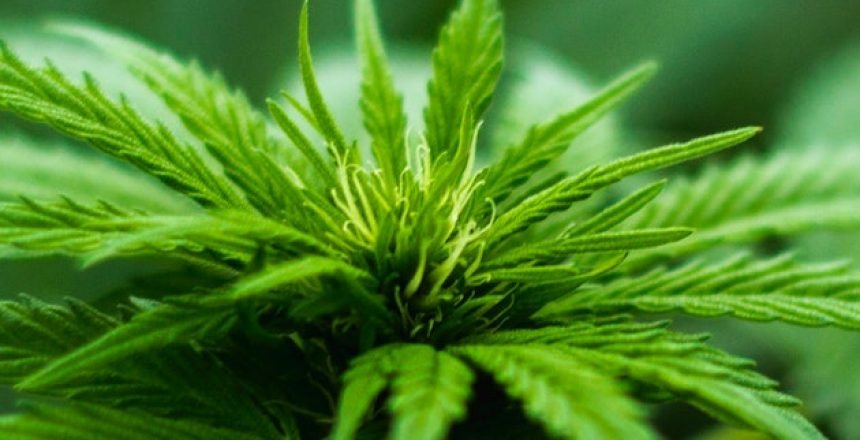Some cannabis compounds—such as THC, CBD, and others—directly interact with receptors in our brains. In some scenarios, this can cause users to experience altered states of consciousness. It’s important to note that taking CBD will not cause you to experience the feeling of being “high.” If you are looking for that sensation, you’ll want to try THC. We will discuss the psychological effects of cannabis below.
What is consciousness anyway? How can taking compounds like THC and CBD impact our consciousness, and why do we feel high?
CBD is a wonderful natural supplement that you can use as a component in your everyday life. The compound imparts impressive health-promoting effects, and many individuals utilize the cannabinoid to treat various ailments to improve their overall health and well-being.
Others may prefer THC, which can bring unique therapeutic and mood-boosting properties. The reason that some people choose THC over CBD is simply the way the compound makes them feel when they get high.
Nonetheless, our cannabis licensing consultant from Green Hope Wellness is considering cannabis and psychology. Here’s what we’ve found out.
What is Quantum Consciousness?
The theory of Quantum Consciousness outlines that our mind exists as self-aware energy information beyond our perceived three-dimensional reality. Our bodies receive energy information from a removed or “secondary” consciousness that enables us to experience thoughts, feelings, moods, images, and other mental stimulation forms.
Moreover, Quantum Consciousness purports that although we experience mental activities as occurring within the body, these broadcasts come from a transcendent location where our mind remains actually located.
Quantum Consciousness theories originate from a series of complex concepts initialized by physicists and their analysis of quantum mechanics. These experts detected a way in which subatomic particles behave differently in the presence of an observer.
In layman’s terms, this boils down to a proposed inability to perceive reality as it really is. Objectivity is essentially an illusion; we measure and describe things as we perceive them.
An entire universe of phenomena exists that we can’t see, hear, or perceive. These experts postulate that our brain exhibits similar quantum behavior to these anomalies. We are beings with two eyes. However, we may need a broad spectrum of lenses to see what really happens in what we perceive as reality.
Cannabis and Its Impact on Consciousness
With many people turning to plant-based medicines and remedies to help them heal, one could say that we inhabit a world with an increasing interest in the cannabis plant. This growing interest includes administering THC and CBD, primarily due to the psychological effects of cannabis compounds.
Many users express that administering cannabis compounds makes them feel healed. But when considering cannabis and psychology, cannabis administrations can offer them space to think between themselves and their emotions. This heightened perception can help users to feel creative or provide breakthroughs in their more profound understanding.
Nevertheless, everyone will experience cannabis administration differently. While most people understand how they will react to alcohol and the impaired sense of consciousness it can produce, consuming THC can result in over-awareness or paranoia.
Many individuals administer THC or CBD compounds when they practice meditation, yoga, spirituality, and mindfulness. They rarely experience problems with paranoia thanks to training their minds against wandering thoughts or overthinking. Overall, how individuals experience cannabis can significantly depend on their environment. When attempting to alter your consciousness, you likely want to be somewhere where you can feel comfortable.
Human Brain Connectivity – Cannabis and Quantum Consciousness
Studies show that cannabis consumption over long periods can increase brain connectivity. THC and CBD from cannabis react to naturally-occurring CB1 receptors in the brain. These receptors are a part of the ECS (endocannabinoid system).
The ECS regulates mood, the immune system, sleep, and other bodily processes. When CBD interacts with these neurotransmitters, it can help to block pain signals, help individuals feel relief from pain and anxiety, or simply help them sleep. Again, it’s important to emphasize that CBD alone does not cause the feeling of being “high.”
Alternatively, when administering THC, the compound’s reaction with an individual’s CB1 receptors creates the commonly-associated “high” that can alter their consciousness and increase brain activity.CBD competes with THC for the CB1 receptors in the brain and when consumed with THC it dampens the psychoactivity of the THC.
Increased connectivity in the brain can help THC users learn to control their thoughts, feelings, and emotions over time. As a result, these individuals additionally curb paranoia while increasing their self-awareness.
Some cannabis users may utilize cannabinoid compounds to practice spirituality and mindfulness as they think deeper about problems, struggles, and internal conflicts. Furthermore, the deepened state of mindfulness and other associated psychological effects of cannabis can help users approach problems with new, creative solutions that they otherwise might overlook.
Cannabinoid Compounds to Improve Your Quality of Life
Cannabis is a tool. When used correctly as a tool, THC and CBD can lead to deeper consciousness and improved overall quality of life.
Quantum Mechanics and ongoing thoughts into the theories behind Quantum Consciousness remain unrelenting in their bizarre nature. Among various other ideas, Quantum Mechanics tells us that subatomic particles can exist in multiple states simultaneously. Particles can move fast and slow, moving one way and another while also existing in two locations.
As the brain attempts to solve problems, it computes a notable amount of information with required processing on multiple levels. These procedures can work together as they trade signals in a continual dialogue.
Cannabis plants contain hundreds of cannabinoids that help shape users’ experience utilizing the compounds: THC, CBD, and Terpenes are the most influential. THC is the primary active cannabinoid responsible for intense psychoactive qualities. CBD effectively alters consciousness by adjusting how a user’s brain creates chemicals. How these elements interact and impact your consciousness depends on your unique biology, so it’s important to research their effects but also to start slowly if you start taking them for the first time. Individuals can develop a tolerance to THC and CBD. Similarly, the higher dose of THC or CBD can also differentiate your experience.
Our cannabis licensing expert recommends consulting with a physician or other approved expert for the best results. Green Hope Wellness proudly works hard to help individuals understand cannabis use and obtain medical green cards to assist them when treating various conditions, from sleep issues to chronic pain and beyond.
To learn more about the psychological effects of cannabis and how CBD or THC products can benefit you, contact the dedicated and professional team from Green Hope Wellness today.


